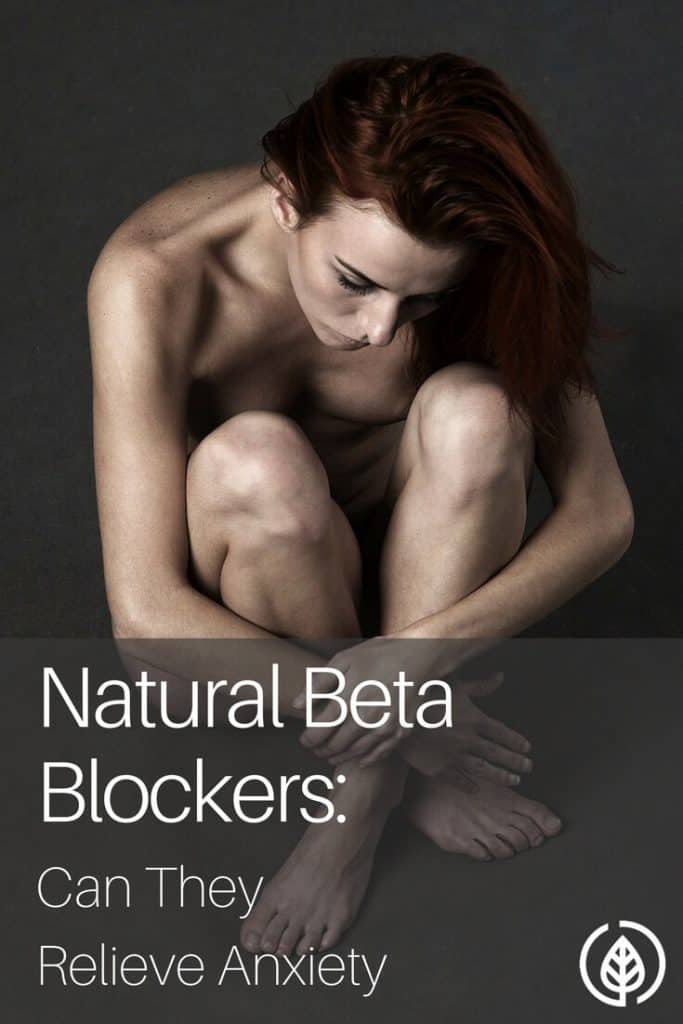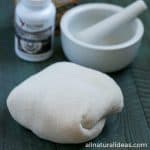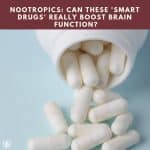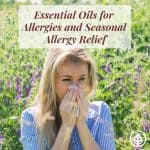Do natural beta blockers exist to help relieve anxiety without harmful side effects? If so, are they as effective as pharmaceuticals? And how exactly do they work?
Are you stressed out and feeling anxious more than you should be? If so, there may be medicinal herbs and other natural alternatives to help relieve stress and anxiety.
It’s estimated that almost one in five American adults are affected by anxiety. That’s about 40 million people over the age of 18. [SOURCE] And the conventional medical treatment is beta blockers.
Table of contents
What Are Beta Blockers
The name refers to a group of pharmaceutical drugs that block the action of beta adrenergic receptors. By doing this, these medications reduce the effects and amount of stress hormones in your body.
The reason they work is because they block adrenaline. Adrenaline is a stress hormone. Blocking it causes the heart to beat slower. And it reduces blood pressure. This helps reduce stress and anxiety.
Why Reduce Stress Hormones?
You’re probably familiar with stories of superhuman feats of strength. A mother lifting a car to free a child. This is one example of why stress hormones are necessary.
Adrenaline makes these feats possible. A healthy stress response is also vital for making it through a strenuous workout.
However, when your bloodstream is constantly flooded with stress hormones, it’s bad. Toxic stress increases the risk for chronic disease. The frequent secretion of stress hormones can also impair memory.
And for 18% of the U.S. adults, the over-secretion of stress hormones produces some level of anxiety. Beta blockers are generally used for cardiac disorders and high blood pressure.
However, beta blockers are also used to treat anxiety disorders. But natural beta blockers could be an option.
Beta Blocker Side Effects
The problem with conventional beta blockers is they can cause side effects. Most side effects are mild. Things like headaches, dizziness, weakness, fatigue, and gastrointestinal issues like upset stomach, diarrhea, or constipation may happen.
However, if not taken properly, they may even cause death. According to this article on Mercola.com, beta-blockers for non-cardiac patients have killed hundreds of thousands of people.
If you have anxiety, there’s no need to get more anxious about beta blockers due to side effects. That’s because there are some natural alternatives that may be just as effective.
There is some research that suggests natural beta blockers for anxiety work. However, funding for large clinical trials of these alternate medications is almost nonexistent. Especially compared to clinical trials for pharmaceutical drugs.
Before highlighting the best natural beta blockers, let’s first learn some more basics about beta blockers…
How Do Beta Blockers Work?
Beta blockers prevent two main stress hormones from binding to their receptor sites. These two stress hormones are norepinephrine and epinephrine.
Epinephrine is better known as adrenaline. Norepinephrine is also called noradrenaline.
What’s the difference between these two stress hormones?
Your body only releases adrenaline when you have stress. In comparison, noradrenaline is always in your bloodstream. Its main role is to regulate blood pressure.
Beta blockers block the effects of adrenaline. What does this action mean if you have anxiety? It allows your heart to relax by slowing down the heartbeats.
And theoretically, if your heart is relaxed, you will be relaxed.
Natural Beta Blockers For Anxiety
There are a high number of people living with excessive anxiety. Because of this, medications to help are in high demand. However, anti-anxiety drugs have a dark side. They can lead to addiction.
Moreover, common prescriptions for anxiety may produce undesirable side effects. These include depression, low libido, as well as suicidal thoughts and seizures.
And here’s another concern with anti-anxiety drugs. They do not actually normalize neurotransmitter activity. Instead, they alter brain chemistry.
This is especially the case with drugs called SSRIs (selective serotonin reuptake inhibitors). One major problem with SSRIs is they lose their effectiveness over time.
Because of this, some people may want natural alternatives to beta blockers. Natural remedies may be safer and more effective.
In fact, both this study and this one conclude the efficacy of Propranolol for anxiety is insufficient to support its use for anxiety disorders. That’s also a reason why you may prefer using a natural treatment.
What Are Some Natural Beta Blockers?
Natural alternatives to beta blockers include the use of vitamins, herbs, or amino acids. These do more than just block stress hormone receptors. They can actually help normalize hormone function.
It should be noted that these aren’t really natural beta blockers. That’s because they don’t block stress hormones like the prescription drugs do. Instead, they work holistically to balance stress hormones.
This beneficial action is something pharmaceutical beta blockers don’t do. And these natural alternatives have no undesirable side effects.
If you’re wondering what the best natural beta blocker alternative is, you’re probably already familiar with some. The first is Omega-3 fatty acids which can increase dopamine.
According to this article, anxiety and dopamine are directly related. Dopamine is a neurotransmitter. And if you get stressed easily, a section of your brain—the amygdala—isn’t getting the right amount of dopamine.
Other natural alternatives that also increase dopamine uptake in the brain include vitamins C, D and E.
Now, if you consume plenty of good sources of omega 3’s like wild salmon and still have anxiety, fret not. There’s more best natural beta blocker alternatives on the list….
Natural Beta Blocker Alternatives
Serotonin is another neurotransmitter that the brain might not get enough when there’s a lot of anxiety. Abnormal levels can impact your mood and also influence how you act in social situations. In addition, serotonin can play an important role in libido.
Natural beta blocker alternatives can also increase serotonin. Omega-3 fatty acids not only boost dopamine uptake, they also increase serotonin as well.
Certain chemicals are critical in the uptake of serotonin in the brain. L-tryptophan and 5-HTP (the precursor to tryptophan) are natural brain supplements.
You may be familiar with tryptophan because it’s an amino acid best known for its calming effect after a Thanksgiving meal. Other supplements that increase dopamine production include vitamins C, D and E.
Vitamins and other nutrients play a critical role in the proper firing of neurotransmitters. So avoid a diet full of processed food. Without proper nutrition, neurons can’t receive the nerve impulse and hormone messages from neurotransmitters.

List of the Best Natural Beta Blocker Alternatives
Here’s a partial list of the best natural beta blocker alternatives:
Glutamine
Glutamine is an amino acid. It helps recycle antioxidants. For this reason, it’s often referred to as the master antioxidant.
Glutamine doesn’t just help build muscle and burn fat. It also plays a critical role in helping the brain relax. It does this by helping make the neurotransmitter, GABA.
Tryptophan and Tyrosine
You already know about tryptophan in turkey. Both tryptophan and tyrosine are amino acids. They both help produce serotonin and dopamine (as well as blood-pressure lowering norepinephrine).
People with anxiety are deficient in serotonin and dopamine. Thus, tryptophan and tyrosine might just be good alternatives to beta blockers.
Several studies link a deficiency in the diet of these amino acids with anxiety.
L-Lysine and L-Arginine
These two are also amino acids. L-lysine deficiency also raises the risk of anxiety. As for arginine, this study suggests supplementation with it reduces the level of the stress hormone, cortisol.
Moreover, arginine may help repair the proper the HPA axis. HPA stands for “hypothalamus-pituitary-adrenal”. These three glands control the release of your stress hormones.
Magnesium
Certain minerals such as magnesium may also act as beta blocker alternatives. Magnesium supplementation, along with calcium, in this study relieved anxiety symptoms.
And there’s a bonus if you’re a menstruating female. When you supplement magnesium along with vitamin B6, it reduces premenstrual-related anxiety [SOURCE].
Selenium
A trace mineral, selenium is supported by at least a few studies, including this one, to reduce anxiety.
St. John’s Wort
St. John’s wort is an herbal remedy. According to this study, it also boosts brain levels of serotonin.
And remember the HPA axis and how it’s the main mechanism that controls your stress hormones? Well, it turns out St. John’s Wort also normalizes the HPA-axis. It does this by reducing inflammation.
Ginkgo Biloba
This herb is known for its ability to improve concentration. Ginkgo biloba has shown the ability in studies (albeit animal subjects) to reduce anxiety. It activates the neurotransmitter GABA. To reiterate, GABA encourages the brain activity to relax.
Ginkgo biloba is so effective at activating GABA that it can be as effective as benzodiazepine, a common anti-anxiety drugs. But the side effects of ginkgo are much less severe than the prescription medication.
Ashwagandha
Ashwagandha is an adaptogenic herb. That means that by nature, it helps normalize stress hormone levels.
Adaptogenic herbs are also safe, non-toxic and have a nonspecific response to stress. Therefore, it can help your body adapt to stress no matter what kind it is.
Moreover, ashwagandha (aka “Indian ginseng” although it’s not a true ginseng) has strong anti-inflammatory properties.
Kava Kava
Kava is another herbal remedy that’s considered one of the best natural beta blockers. Kava’s compounds bind to GABA and dopamine receptors. It acts a muscle relaxer.
Kava kava is famous for its mild narcotic effects. On the island of Fiji, the natives make a beverage out of the root. Then they drink it until the gums of the mouth turn numb.
In the U.S., people primarily use kava as an herbal extract. (Although some trendy kava lounges are sprouting up in hipster neighborhoods.)
Valerian Root
Valerian also is involved with GABA production in the body. So consuming it helps increase levels of the neurotransmitter.
GABA
By now, you should be familiar with the neurotransmitter, GABA. GABA reduces the excitability of your neurons. It basically relaxes your brain during times of stress.
Theanine
You probably know green tea is good for your health because of its antioxidants. But what you probably didn’t know is that green tea also contains an amino acid, theanine.
Theanine calms the brain. Moreover, it increases the production of both dopamine. It also boosts GABA activity.
Other Herbs
Numerous other botanicals act as natural alternatives to beta blockers. These include chamomile, which can help you fall asleep.
This meta analysis of natural anti-anxiety remedies also lists hops, lemon balm, skullcap, passionflower and rosenroot as natural options.







